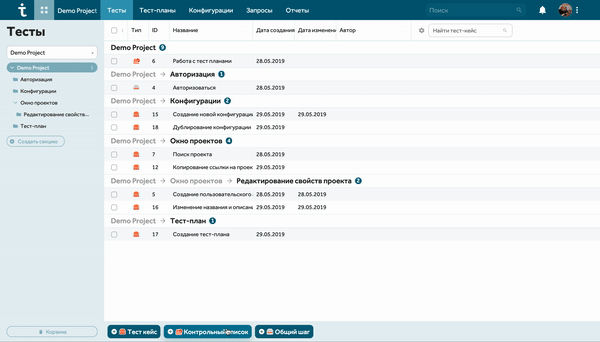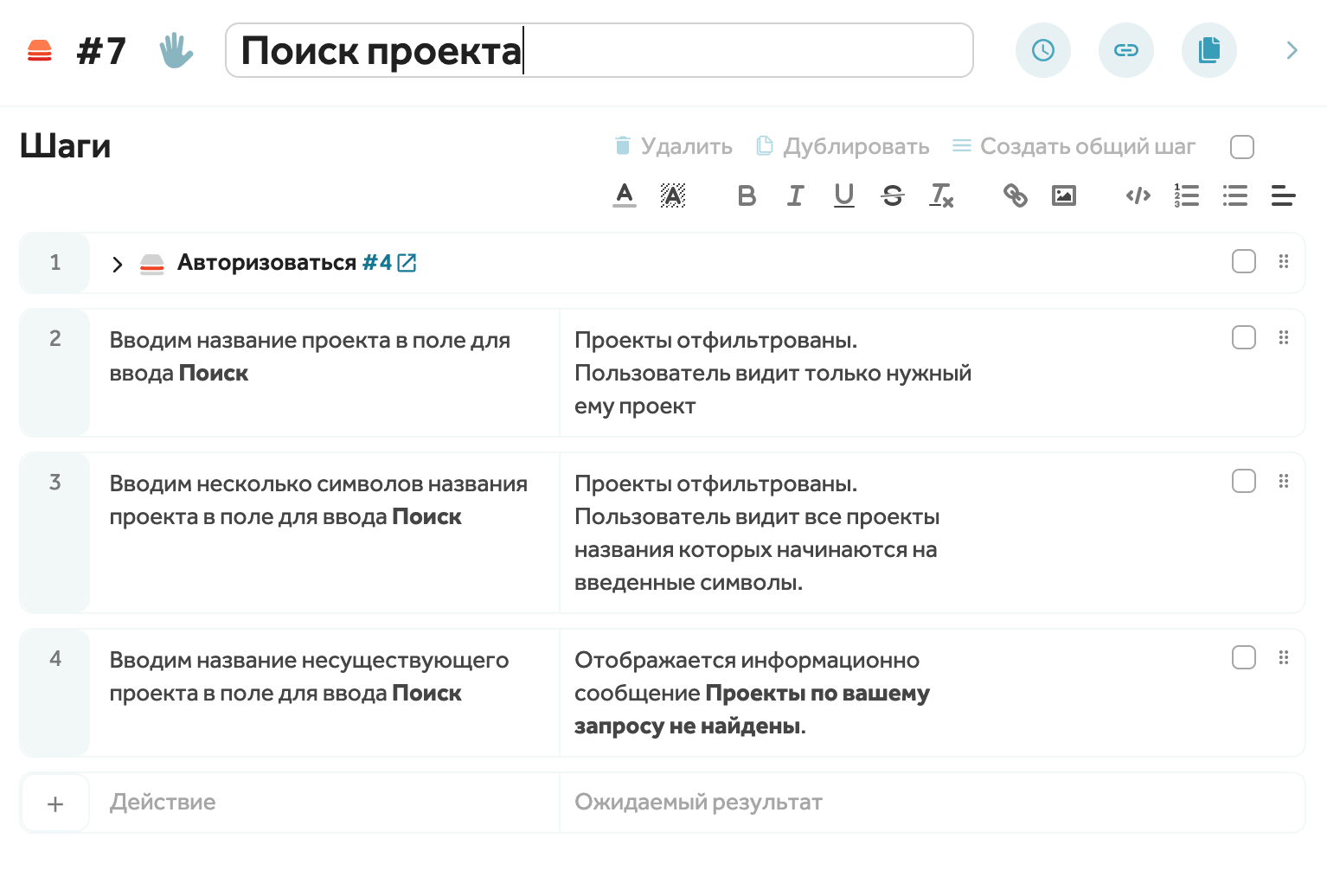Your perfect tester
From time to time we need to find a tester. The scope of the search can be different: urgent or not, several or one, with certain skills or just an adequate junior. The questions come down to one thing - how to understand that we are facing the right person?
An essay from psychology will help here.
Personality is a complex multilayer structure. Her deepest level consists of personal qualities. These are stable internal characteristics of a person, such as sincerity. It is quite difficult to extract them, few show them at every step. They open only after several years of work side by side.
The next layer is values and beliefs. These are the characteristics that answer the question “why?” And “why?”. This feeling of beauty or the desire to communicate with good people. It is important to know, but they will not tell you about it. It will not be possible to reveal this in an hour of the interview, because you still need to talk about the company and the position.
The next layer is actions. The way a person usually does, how he solves his problem. Probably, if he acted in this way before, then he will also behave at work. We often confuse actions with personality traits. A person can have a lot of reasons to delay closing the task, but we only see his act.
At work, sometimes it doesn’t matter why a person does just that, the main thing is to do his job. You can change someone’s unpleasant behavior, such as being late or cheating. But it will take years.
The next layer: knowledge and skills. This is what a person has learned, what he can do. If we are looking for junior QA, then he does not have knowledge and skills. But this is not scary, because they can be increased.
Next layer: area of illusions. This is what a person thinks of himself. This is the most easily changeable layer of personality. It is much easier to lose illusions about your own abilities than to change the urge to use one smartphone instead of another.
To better understand who we are looking for, you need to create an employee profile.
It must be borne in mind that some qualities do not fit well. A person prone to inventive, creative approach rarely sits on the same thing. A meticulous five can be unbearable in communication.
It all depends on the goals and methods of the company. The young team is usually dominated by the principle of "whatever, if only it were done." Here we need a mobile and team tester who is focused on the result.
When a company has grown, it can afford multi-stage customer care. Such a team requires a meticulous and assiduous colleague who will cover everything with tests.
Let's list the most popular traits for the profession of a tester.
Such a tester is always on the alert and writes everything down. He always has a set of notes at hand: a notebook with a pen, a laptop with a text editor or a smartphone with notes. To immediately record a fleeting insight or unexpected remark.
From the moment such a QA learns about a task, it immediately captures for itself everything it collects bit by bit - from requirements, from developers, from its own experience or that of colleagues. He can even immediately throw up an approximate checklist for checks, because the main thing is to catch the essence, and you can paint the details later.

Creating a checklist is quick
The day will come when the old-timers of the project will leave. Hopes for documentation may not come true: the text contains outdated concepts, or is absent altogether. You can try to contact colleagues from the business department. But most likely, they have everything scattered on tickets, Wikipedia and instant messengers. The complexity of checking the functionality will increase, because time will go to search for descriptions of the simplest actions.
As Dr. House said, “All people lie.” The developer completed work on a minor bug, the tester immediately checked. If there is time, then checked twice. The tester will never believe that something can be fixed from the first time to the end. Everyone is mistaken. And the more experienced the developer, the more mysterious his mistakes.
A critically minded QA reveals not obvious errors, but logical ones from the point of view of the technical task. His test cases do not repeat the requirements, but check them.

“Illogical” and “impossible” are two different things
To test is to question the product. There is always a chance that the user will go his own way. Most often, this path is different from the obvious. To test the most incredible scenarios, it is worth considering each part of the requirement as a separate variable. Combinations of variables can be invented as much as you like. It is necessary to build on this information.
And if you found a floating bug and did not fix it, then by all laws, users will point you to it. Testing is free research, its logic cannot be automated.
The tester often works in conditions of lack of input data and fuzzy requirements. Sometimes you have to crawl into the code yourself to understand how the system works.
For a curious test engineer, such a process can be fun. It may be possible to localize a floating bug. Then it remains to carefully document it in the form of a brief error report, outlining the sequence of playback steps.
And it happens that the technical task consists of a couple of words, and the code does not add clarity. Then the surest solution is to send the task to the customer for addition.

The detailed steps of the test case inspire calm
The relevance of the information does not last long. During the development process, it seems that everyone remembers the nuances of the task. And when she goes into testing, the sad truth turns out. There are no requirements, and the developers filled what they understood.
To avoid unpleasant conversations, you need to create your test case based on the task. It describes in detail everything that needs to be checked. The last step in testing is to make a report that is understandable even to an uninitiated person. PM will see the test result and find weaknesses. Pedantry will help to closely monitor the testing process.
The tester appreciates the ability to talk about the problem. To convey to the team the seriousness and criticality of the situation, and sometimes vice versa, is the classic task of this profession.
A testing engineer must be persistent with business customers. You will have to persuade them to write down their wishes in the text of the task or comments. After all, anything said out loud or described in the chat can stay there. Repeating persuasion is worth it until they take it into a habit. Otherwise, the task may not go far.
When there is no analysis of requirements, the tester has to set development tasks on his own. In this case, one cannot do without mutual understanding with developers. It is necessary to tell colleagues what and how should work. It is worth explaining that no matter how it is executed in the code, the main thing is that it works as it should.

The sooner you talk about a problem, the cheaper it is to fix it.
The tester does not need the communicative skills of the sales manager or the charisma of the leader. The emphasis is not on how well he speaks, but on the ability to exchange information, communicate. Enough ability to give feedback and clearly ask for help when it is needed.
A reasonable tester understands that responsibility is helping yourself in the future.
The responsible QA does not wait until the developer finishes writing the code, but is involved in the process in advance. He draws attention to the task as soon as it appears on the kanban board. In this period, you can clarify the requirements of the customer, and prevent the reopening of the task. And when the functionality is finished developing, the tester already has a complete understanding of it.

Prepare a sled in the summer, and a test case with a code
The executive officer is appreciated for understanding the task and its implementation. Not “try”, but “do” says the tester focused on the result.
The responsibility lies in a clear desire to optimize work processes. It is better to take care in advance of the implementation of the necessary actions of what will need to be done. Configured test environment configurations now - freed from these activities in the future.
Finding a good tester is a big problem. The goals of the QA engineer balance on the verge of the desires of the business and the desires of the users. What he constantly reminds interested parties. This is a position for a person who solves both technical and communication problems.
A tester is more than a profession. This is a way of life. If involvement depends on skillful leadership and timely promotion of work. That energy and adequacy is what can be recognized in a person from the first hour of communication. In the end, ideal people do not exist, and the choice of a candidate for a position as a test engineer must be approached with common sense.
An essay from psychology will help here.
Personality is a complex multilayer structure. Her deepest level consists of personal qualities. These are stable internal characteristics of a person, such as sincerity. It is quite difficult to extract them, few show them at every step. They open only after several years of work side by side.
The next layer is values and beliefs. These are the characteristics that answer the question “why?” And “why?”. This feeling of beauty or the desire to communicate with good people. It is important to know, but they will not tell you about it. It will not be possible to reveal this in an hour of the interview, because you still need to talk about the company and the position.
The next layer is actions. The way a person usually does, how he solves his problem. Probably, if he acted in this way before, then he will also behave at work. We often confuse actions with personality traits. A person can have a lot of reasons to delay closing the task, but we only see his act.
At work, sometimes it doesn’t matter why a person does just that, the main thing is to do his job. You can change someone’s unpleasant behavior, such as being late or cheating. But it will take years.
The next layer: knowledge and skills. This is what a person has learned, what he can do. If we are looking for junior QA, then he does not have knowledge and skills. But this is not scary, because they can be increased.
Next layer: area of illusions. This is what a person thinks of himself. This is the most easily changeable layer of personality. It is much easier to lose illusions about your own abilities than to change the urge to use one smartphone instead of another.
What qualities are we looking for?
To better understand who we are looking for, you need to create an employee profile.
- Choose four or five key characteristics that you are looking for in the job seeker.
The most popular: responsible, critical, picky, inquisitive, assiduous, inventive, attentive, thoughtful, capable of routine work, logical, team player. - A score of one to five is assigned to each characteristic. Which implies how brightly in a person this property of character should be manifested.
It must be borne in mind that some qualities do not fit well. A person prone to inventive, creative approach rarely sits on the same thing. A meticulous five can be unbearable in communication.
How to choose?
It all depends on the goals and methods of the company. The young team is usually dominated by the principle of "whatever, if only it were done." Here we need a mobile and team tester who is focused on the result.
When a company has grown, it can afford multi-stage customer care. Such a team requires a meticulous and assiduous colleague who will cover everything with tests.
Let's list the most popular traits for the profession of a tester.
Attentive / Vigilant
Such a tester is always on the alert and writes everything down. He always has a set of notes at hand: a notebook with a pen, a laptop with a text editor or a smartphone with notes. To immediately record a fleeting insight or unexpected remark.
From the moment such a QA learns about a task, it immediately captures for itself everything it collects bit by bit - from requirements, from developers, from its own experience or that of colleagues. He can even immediately throw up an approximate checklist for checks, because the main thing is to catch the essence, and you can paint the details later.

Creating a checklist is quick
Why?
The day will come when the old-timers of the project will leave. Hopes for documentation may not come true: the text contains outdated concepts, or is absent altogether. You can try to contact colleagues from the business department. But most likely, they have everything scattered on tickets, Wikipedia and instant messengers. The complexity of checking the functionality will increase, because time will go to search for descriptions of the simplest actions.
Critical / Logical
As Dr. House said, “All people lie.” The developer completed work on a minor bug, the tester immediately checked. If there is time, then checked twice. The tester will never believe that something can be fixed from the first time to the end. Everyone is mistaken. And the more experienced the developer, the more mysterious his mistakes.
A critically minded QA reveals not obvious errors, but logical ones from the point of view of the technical task. His test cases do not repeat the requirements, but check them.

“Illogical” and “impossible” are two different things
Why?
To test is to question the product. There is always a chance that the user will go his own way. Most often, this path is different from the obvious. To test the most incredible scenarios, it is worth considering each part of the requirement as a separate variable. Combinations of variables can be invented as much as you like. It is necessary to build on this information.
And if you found a floating bug and did not fix it, then by all laws, users will point you to it. Testing is free research, its logic cannot be automated.
Curious / Meticulous
The tester often works in conditions of lack of input data and fuzzy requirements. Sometimes you have to crawl into the code yourself to understand how the system works.
For a curious test engineer, such a process can be fun. It may be possible to localize a floating bug. Then it remains to carefully document it in the form of a brief error report, outlining the sequence of playback steps.
And it happens that the technical task consists of a couple of words, and the code does not add clarity. Then the surest solution is to send the task to the customer for addition.

The detailed steps of the test case inspire calm
Why?
The relevance of the information does not last long. During the development process, it seems that everyone remembers the nuances of the task. And when she goes into testing, the sad truth turns out. There are no requirements, and the developers filled what they understood.
To avoid unpleasant conversations, you need to create your test case based on the task. It describes in detail everything that needs to be checked. The last step in testing is to make a report that is understandable even to an uninitiated person. PM will see the test result and find weaknesses. Pedantry will help to closely monitor the testing process.
Outgoing / Compliant
The tester appreciates the ability to talk about the problem. To convey to the team the seriousness and criticality of the situation, and sometimes vice versa, is the classic task of this profession.
A testing engineer must be persistent with business customers. You will have to persuade them to write down their wishes in the text of the task or comments. After all, anything said out loud or described in the chat can stay there. Repeating persuasion is worth it until they take it into a habit. Otherwise, the task may not go far.
When there is no analysis of requirements, the tester has to set development tasks on his own. In this case, one cannot do without mutual understanding with developers. It is necessary to tell colleagues what and how should work. It is worth explaining that no matter how it is executed in the code, the main thing is that it works as it should.

The sooner you talk about a problem, the cheaper it is to fix it.
Why?
The tester does not need the communicative skills of the sales manager or the charisma of the leader. The emphasis is not on how well he speaks, but on the ability to exchange information, communicate. Enough ability to give feedback and clearly ask for help when it is needed.
Responsible / Executive
A reasonable tester understands that responsibility is helping yourself in the future.
The responsible QA does not wait until the developer finishes writing the code, but is involved in the process in advance. He draws attention to the task as soon as it appears on the kanban board. In this period, you can clarify the requirements of the customer, and prevent the reopening of the task. And when the functionality is finished developing, the tester already has a complete understanding of it.

Prepare a sled in the summer, and a test case with a code
Why?
The executive officer is appreciated for understanding the task and its implementation. Not “try”, but “do” says the tester focused on the result.
The responsibility lies in a clear desire to optimize work processes. It is better to take care in advance of the implementation of the necessary actions of what will need to be done. Configured test environment configurations now - freed from these activities in the future.
Finally
Finding a good tester is a big problem. The goals of the QA engineer balance on the verge of the desires of the business and the desires of the users. What he constantly reminds interested parties. This is a position for a person who solves both technical and communication problems.
A tester is more than a profession. This is a way of life. If involvement depends on skillful leadership and timely promotion of work. That energy and adequacy is what can be recognized in a person from the first hour of communication. In the end, ideal people do not exist, and the choice of a candidate for a position as a test engineer must be approached with common sense.
All Articles